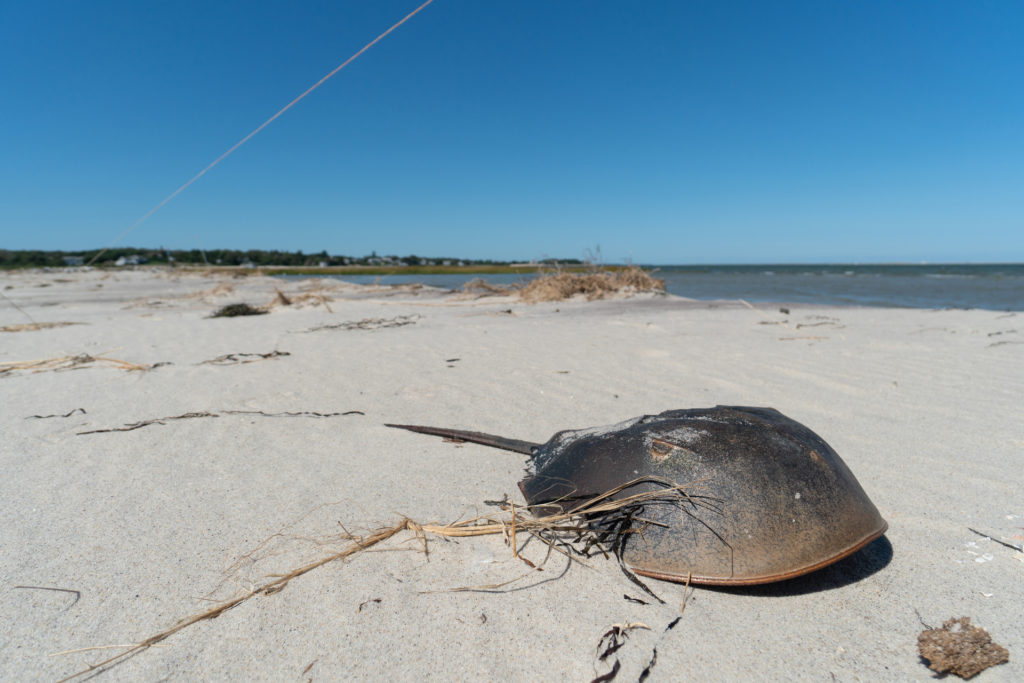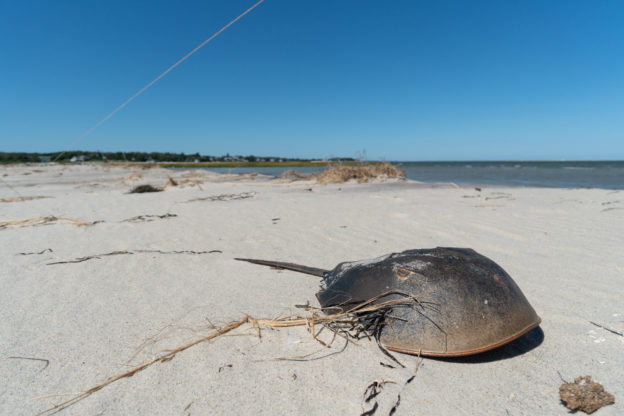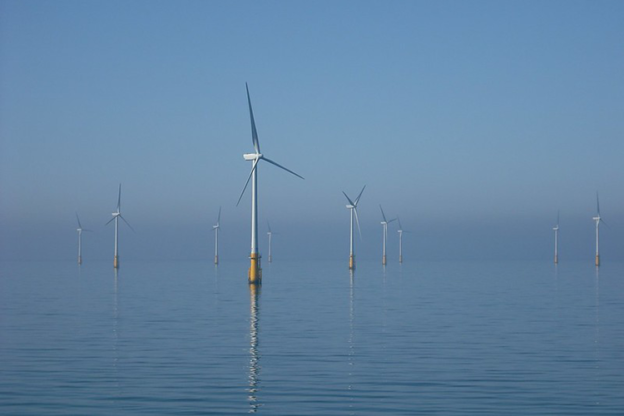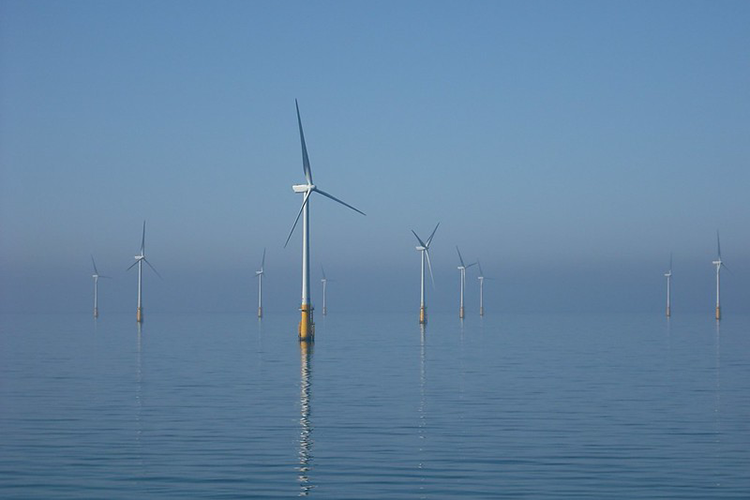News: Overexploitation of Horseshoe Crabs Continues Despite Overwhelming Support for their Protection
For more than 400 million years, horseshoe crabs have survived in virtually unchanged form. Today, horseshoe crab eggs fuel epic annual migrations of the Red Knot and other coastal birds, but the crabs and other species that depend on them are in trouble.
Tragically, decades of overexploitation have depleted these ancient creatures to a fraction of their historic populations. Recently, the state body tasked with managing this species in Massachusetts, the Marine Fisheries Advisory Commission (MFAC), voted down key protections aimed at reversing their decline. Without further protections, horseshoe crabs will continue to be harvested while spawning and laying eggs and will stand little chance of rebounding to healthy population levels.
We’re calling on the MFAC to reverse this unacceptable decision—we must ramp up protections for the oldest species in Massachusetts.

A Failure to Protect Horseshoe Crabs
Mass Audubon scientists and advocates have called for stronger horseshoe crab protections for years. Fortunately, the Massachusetts Department of Marine Fisheries (DMF) recently proposed a harvesting ban from January 1 through May 3, which would have protected horseshoe crabs during spawning. We rallied wildlife lovers to submit public comments in support of these protections and you delivered! The DMF received more than 1,350 comments, over 80 percent of which came from Mass Audubon supporters.
Tragically, the MFAC—an appointed board dominated by the fishing industry—chose to ignore unanimous public support and recommendations by DMF scientists. They voted against restricting horseshoe crab harvesting during spawning season. Instead, they approved weaker regulations, such as lowering annual crab harvest quotas. But these protections fall far short of those needed to return horseshoe crab populations to healthy levels.
In support of their decision, the MFAC cited our data that showed slight increases in horseshoe crab numbers during the last few years. However, these increases were primarily in places where bait harvest was banned, and crab numbers remain radically below their historic levels. We need to see long-term, strong growth to put horseshoe crab populations on track towards recovery.
Threats to Horseshoe Crabs in Massachusetts
Scientists at Mass Audubon’s Wellfleet Bay Wildlife Sanctuary have conducted annual surveys of horseshoe crabs for more than two decades. In recent years, they have found chronically depleted populations with highly skewed male-female ratios. Two irresponsible harvesting practices drive this frightening trend.
First, commercial fishermen harvest more than 100,000 crabs each year to use as bait for whelk—a species that is already overfished in Massachusetts. Harvesting one depleted species to use as bait for another is the height of irresponsible overfishing. Mass Audubon calls for an end to this practice.
Biomedical industry practices add to the pressure from commercial bait fishing. By bleeding horseshoe crabs for a compound found in their blood to test drug purity, biomedical companies make millions by testing pharmaceutical products for bacteria. The industry claims this practice is humane, but studies have shown that up to 30% of crabs die after being bled.
Developing effective synthetic alternatives to the compound extracted from horseshoe crabs will be part of the solution to the problems created by biomedical harvests. In the meantime, however, the bleeding industry must be carefully regulated.
Recognizing the threats to horseshoe crabs, other states like Delaware, Maryland, New Jersey, and South Carolina have committed to strict regulations on harvesting female crabs or harvesting at all during the spawning season. These strong protections elsewhere on the Atlantic Coast are driving more harvesters to Massachusetts, making it even more crucial that we do our part in protecting this ancient species.
How You Can Help Protect Horseshoe Crabs
Mass Audubon is committed to challenging the MFAC’s decision and continuing to push for stronger protections for horseshoe crabs. Stay tuned for updates on how you can help protect horseshoe crabs, then get ready to share far and wide—we’ll need all hands on deck!




